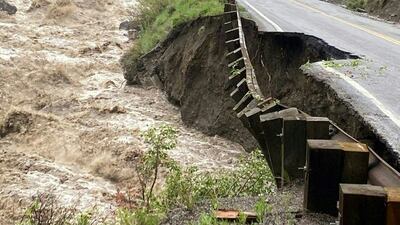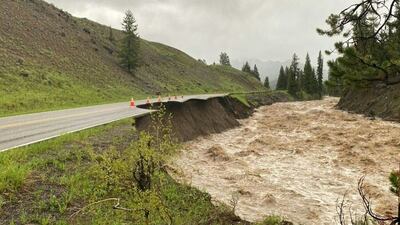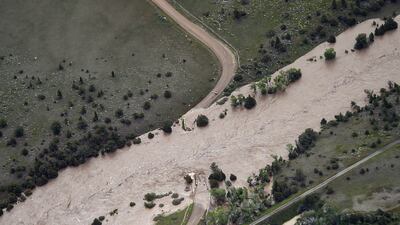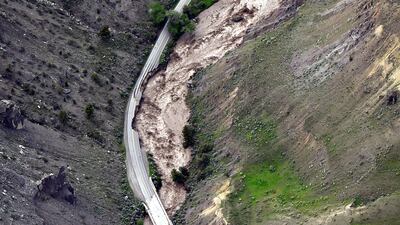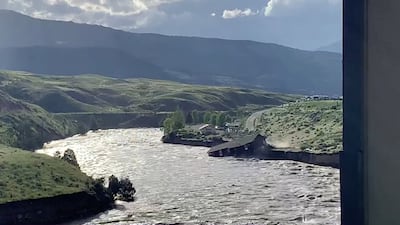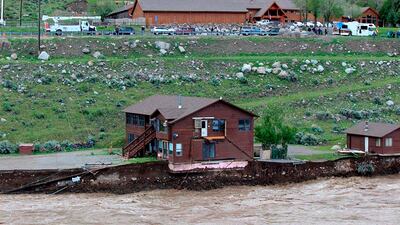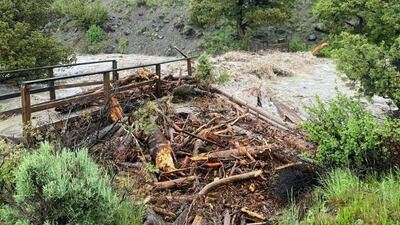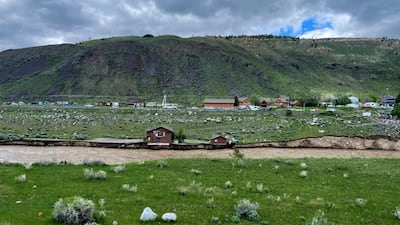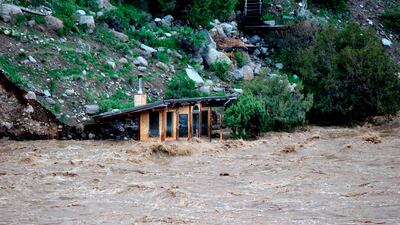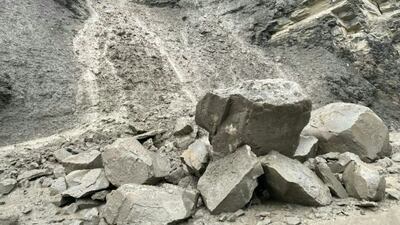Record flooding and mudslides have devastated Yellowstone National Park in the US state of Wyoming, prompting its first closure in 34 years and forcing visitors to leave at the peak of the summer tourist season.
Yellowstone's five entrances were closed on Monday after heavy rain and melting snow caused the deluge, park superintendent Cam Sholly said. It will remain closed through Wednesday at least.
“We will not know timing of the park’s reopening until flood waters subside and we're able to assess the damage throughout the park,” Mr Sholly said.
Yellowstone is one of the largest parks in the US. At 899,116 hectares, it is larger than the states of Rhode Island and Delaware combined. The park is mostly located in the north-west corner of Wyoming but extends into Montana and Idaho.
There were no immediate reports of injuries, although dozens of campers were removed by raft in south-central Montana.
The Yellowstone River at Corwin Springs crested at 4.2 metres on Monday, higher than the previous record of 3.5 metres set in 1918, the National Weather Service reported.
Videos and photos captured by Yellowstone's helicopter manager showed a landslide, a washed-out bridge and roads overwhelmed by floods.
The rains hit right as summer tourist season was ramping up. June is one of Yellowstone's busiest months, marking the start of an annual wave of more than three million visitors that does not abate until the autumn.
Remnants of winter — in the form of snow still melting off and rushing off the mountains — made for an especially bad time to get heavy rain.
“It’s a lot of rain, but the flooding wouldn’t have been anything like this if we didn’t have so much snow,” said Cory Mottice, meteorologist with the National Weather Service in Billings, Montana.
“This is flooding that we’ve just never seen in our lifetimes.”
The flooding occurred as record-high temperatures and dry weather affect other parts of the US. More than 100 million Americans were warned to stay indoors across the country in recent days.
Excessive heat watches and warnings were issued in Illinois, Indiana, Arkansas, Alabama and parts of several other US states.
In the western part of the country, crews from California to New Mexico battled wildfires in hot, dry and windy weather. The south-western cities of Phoenix, Denver, Las Vegas and California's Death Valley all recorded record-high temperatures at the weekend.
Scientists say climate change is responsible for more intense and more frequent extreme events such as storms, droughts, floods and wildfires, though single weather events usually cannot be directly linked to climate change without extensive study.
Agencies contributed to this report
